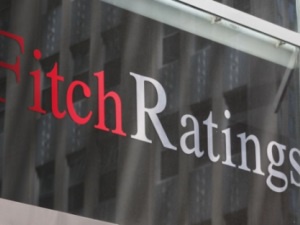Ghana’s ability to maintain its recent progress on fiscal consolidation will be an important factor in sovereign ratings assessment following last week’s elections, says Fitch Ratings.
“Failure to narrow the budget deficit and stabilise government debt/GDP would be negative for Ghana’s credit profile,” said the international credit rating agency in a statement issued in London yesterday.
Fitch said fiscal consolidation consistent with debt declining over the next two years could lead to a revision of the Outlook to Stable.
In September, Fitch affirmed Ghana’s ‘B’/Negative sovereign rating, noting the progress made in fiscal consolidation and macroeconomic stabilisation under the IMF programme, but also the substantial downside risks, including around the election.
The credit rating agency believed the incoming government led by Nana Akufo-Addo was committed to Ghana’s multi-year adjustment programme, “but previous elections have led to fiscal slippage”.
Measures
According to Fitch, retrenchment by the outgoing government had halved the fiscal deficit in the last two years through measures such as raising VAT and cutting public-sector salaries (Fitch forecast a 2016 deficit of 5 percent of GDP, down from 10.2 percent in 2014) and has paid down arrears. “This has kept Ghana compliant with its US$915 million IMF extended credit facility,” it said.
The incoming government’s manifesto commitments include “maintain fiscal discipline” and introducing a fiscal responsibility law to improve the budgetary process.
The agency noted that the desire to cut debt servicing costs provide another strong incentive for fiscal consolidation.
“Our baseline fiscal forecasts reflect political commitment to deficit reduction and the role of the IMF programme as a policy anchor. They are consistent with general government debt falling from a peak of 72 percent of GDP at end-2015 to 69 percent this year and 56 percent of GDP in 2020, which is close to the current ‘B’ category median of 54 percent,” the statement said.
Fiscal slippage
However, the statement said risks to Fitch forecasts were weighted to the downside.
“Fiscal slippage has been a feature of previous Ghanaian elections, as governments have sought to boost their standing with the population,” it said. For example, the previous elections in 2012 heralded a marked widening of the fiscal deficit, which reached 11.6 percent of GDP the following year. Fitch said though measures to stop ministries, departments and agencies spending without budgetary approval had been enacted, there was still the risk that significant arrears appear later.
Pledges
The incoming government manifesto includes higher infrastructure spending to eliminate economic bottlenecks as part of a plan for annual double-digit growth over the next four years.
It also pledges to reduce the tax burden on the private sector through lower corporate tax and the removal of import duties and VAT from some items but relies on revenue measures such as improving tax compliance, improving the quality of public finance administration, and higher oil and gas production to finance these tax cuts.
This, Fitch said, would make consolidation more challenging, if growth disappoints or oil production at new fields was delayed.
“High inflation could have a fiscal impact, if it keeps domestic funding costs elevated (yields can be as high as 20 percent on short-term instruments), although we think the Bank of Ghana may have scope to ease monetary policy in 2017, as the impact of electricity tariff adjustments drops out of CPI calculations, lowering headline inflation,” the credit rating agency said.
Fitch Ratings offers its services in the areas of corporate finance, emerging markets, financial institutions, infrastructure, insurance, public finance, sovereigns, and structured finance.
Business News of Saturday, 17 December 2016
Source: Ghanaian Times

















